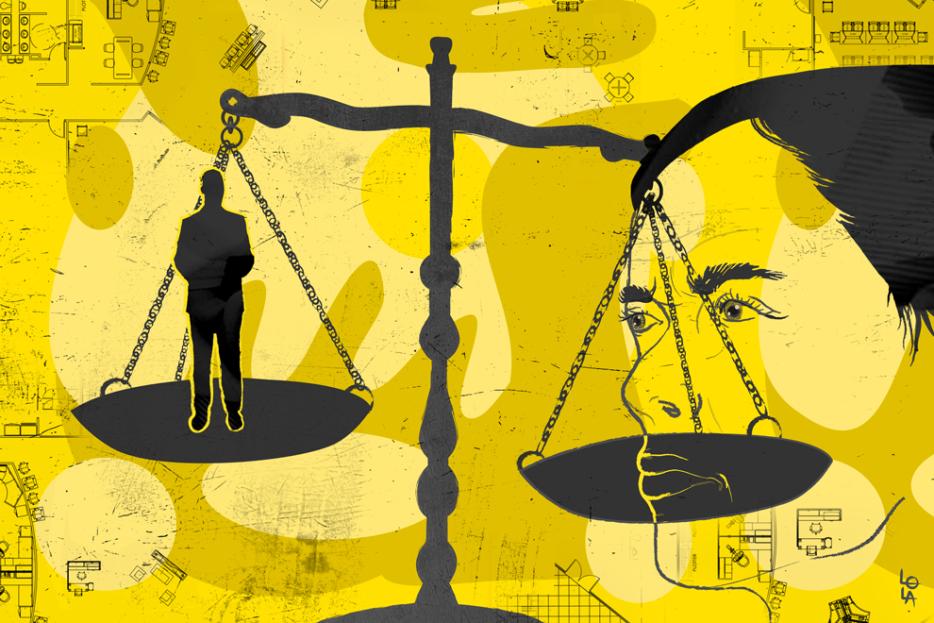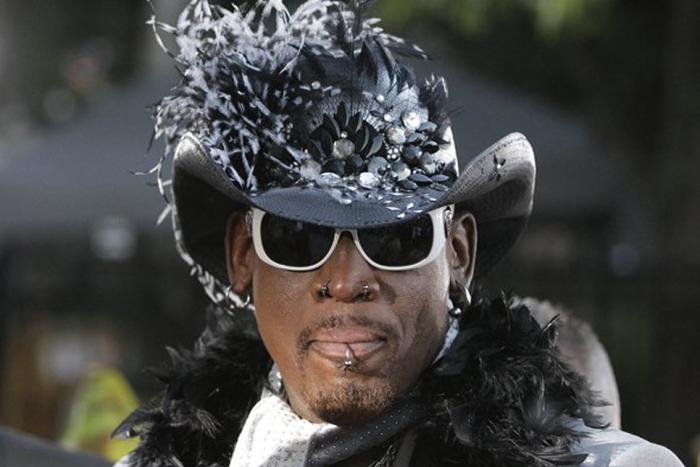Courtroom #101 has yellow walls, short gray carpet, and a couple sitting next to each other at the right end of a long wooden table. “We’re on the wrong side,” Helen says. She’s later middle-aged, dyed-black hair, a little too thin. Her husband doesn’t believe her, looks up, his bald spot shimmering in the florescent light. In front of him is a sign where three-inch capital letters in a sans-serf font spell out, ‘PLAINTIFF.’
“Are you sure?” Doug asks.
Helen’s already moved over. Doug follows, sits beside her. To his right a young man in a suit a little too expensive sits in the chair Helen just vacated. Let’s call him the Kid. The Kid straightens his tie, clicks his pen, then pulls a binder out of a backpack, blowing his image of professionalism completely. Everybody rises as the Justice Lewis comes in.
Justice Lewis sits, then immediately looks over his shoulder at the clock on the wall. It’s 10:04. He sighs a small sigh. Small claims trials can conclude in twenty-minutes. Few last longer then an afternoon. This one is going on Day Three. Justice Lewis looks from the clock to the Kid. Then he looks at Helen and Doug. “Okay, it’s your turn. Over to you,” Justice Lewis says, nodding towards the Defendants. Helen continues to stare straight ahead. She does not look at her husband as he stands, collects a stack of paper and moves into the witness box, although it’s not really a box, more of a C-shape in the banister.
“I’ll just be fifteen minutes,” Doug says. Justice Lewis manages a stoic look. Doug begins to read. Five minutes into it Helen begins pinching the bridge of her nose with her index finger and thumb, like she’s trying to stop a pain. Minute sixteen, then twenty pass: Doug’s still reading from his prepared statement. Several times Justice Lewis has interrupted, asking for clarification.
“I’m just about to get to that,” Doug says.
“Very well,” Justice Lewis says, his look getting slightly less stoic.
Doug’s version goes something like this: he and Helen own a 6,000 square foot, 100 year-old home, worth approximately 2.2 million, in downtown Toronto. In 2011 they decided to renovate the kitchen. For reasons that remain murky, their regular bank wouldn’t give them a second mortgage for $175,000, but set them up with a loan company, which the Kid works for.
Doug maintains that the Kid’s company was trying to sandbag them, demanding excessive paperwork and unnecessary building permits in order to rack up fees and expenses. Doug and Helen did sign a deal agreement, but they never actually signed a mortgage, although one was drafted. Doug’s maintaining that the building permits the loan company wanted were beyond the scope of the work they’d planned to do. And since these building permits were never supplied, the loan company didn’t come through with the cash. The deal went into limbo until, on December 30, Helen emailed the Kid’s company and broke it off. Now the Kid’s suing them for Commitment, Legal and Standby Fees incurred—a combined total of $11,397. All for money they never received.
When Doug finishes his statement it’s 11:15 and the Kid starts his cross-examination. For a bit the trial starts to feel like a wedding rehearsal; nobody’s sure where they should be. Justice Lewis tells everyone to just stay were they are, and go ahead with it. The Kid delivers six or seven questions written down on the back of some other piece of paper. He’s good at it, rhetorically swinging from point to point, emotionless, egoless, a perfect extension of the faceless corporation he represents. Helen appears to be taking notes, but she’s actually doodling, the long straight strokes of her pen, possibly producing the stem of a flower, give her away. When she bothers to glance up at her husband, the look is not filled with love.
Doug’s clearly not used to being challenged. He does not like the Kid and this is making him appear unlikable. Doug’s defensive, which given his wool suit and the fact that he has not touched, not once, the fashionable glasses which hang around his neck, make him come off as aloof and his answers come off as evasive. The Kid’s main point is to insinuate that Doug wouldn’t provide the requested building permits because he was trying to dodge an increase in property taxes.
“Have you gone ahead with these renovations?” the Kid eventually asks, now near the end the of list of questions. A long pause follows.
“Yes,” Doug finally says.
“Did you get building permits?” the Kid asks. The radiators come on and the hum fills the room for a while.
“No,” Doug says.
The Kid nods, clicks his pen, sits down. He’s trying very hard not to smile. Doug looks from the Kid to the Justice, and over to Helen, who’s staring, intensely, at something invisible. Doug says nothing more. He leaves the witness stand. He sits down beside Helen. When he leans towards her, to whisper something in her ear, she leans away.
“Are you done?” Justice Lewis asks.
“I think we are,” Helen says. “I think we are.”






